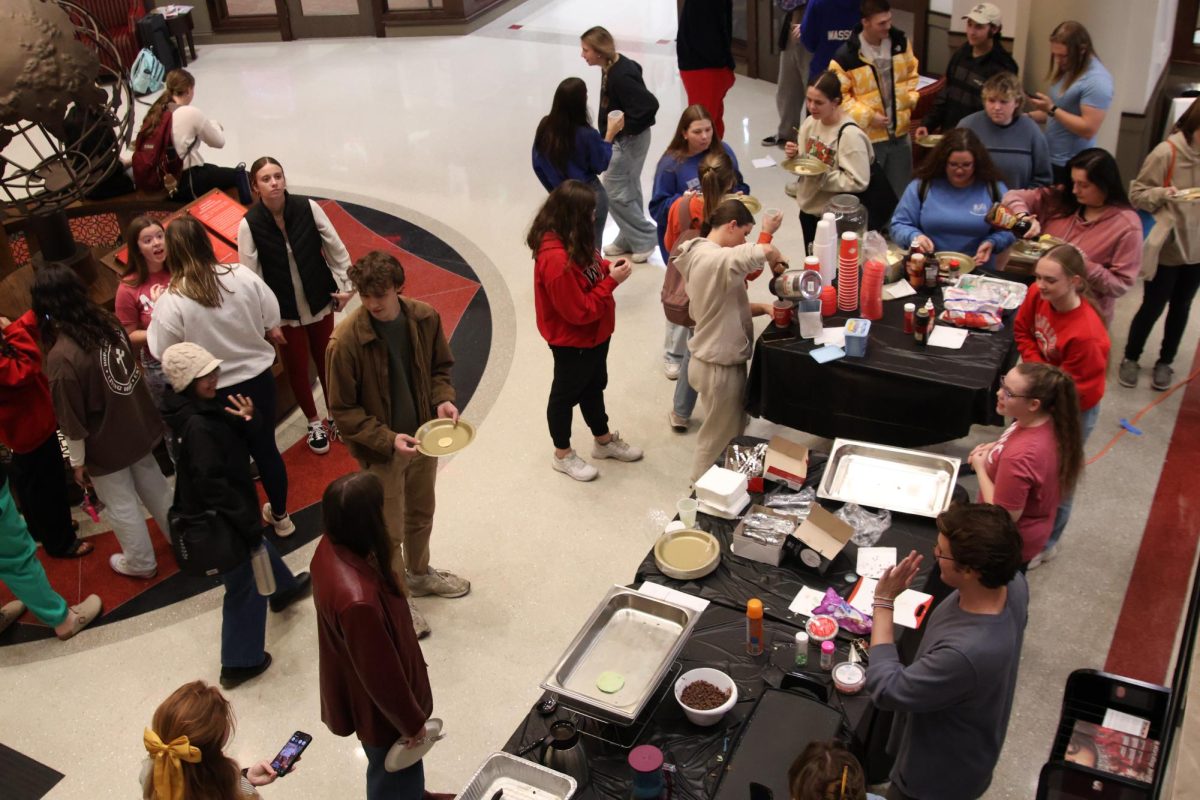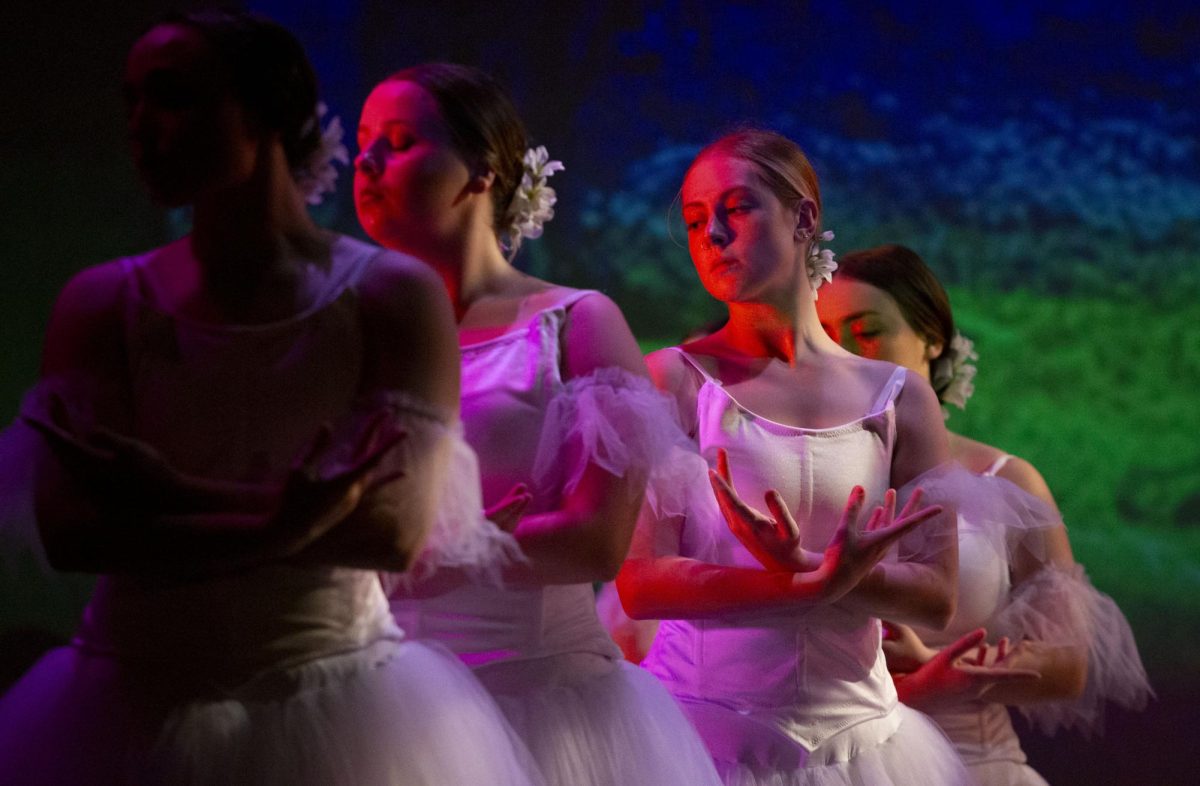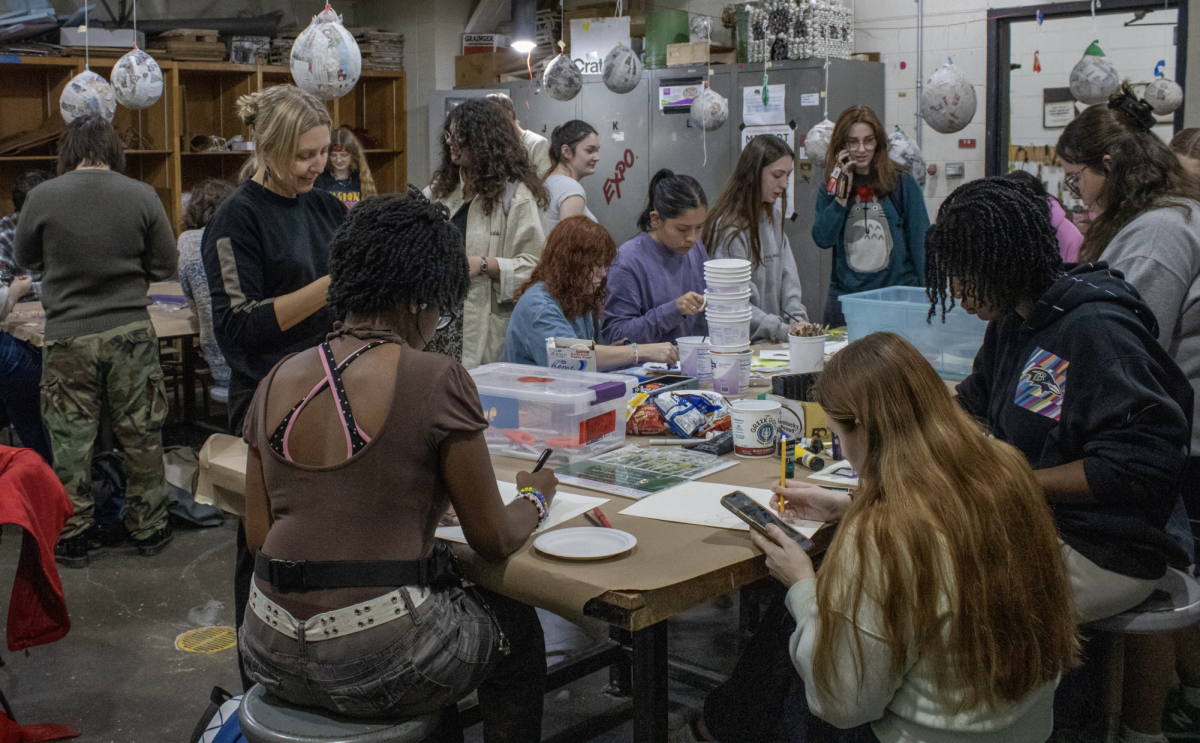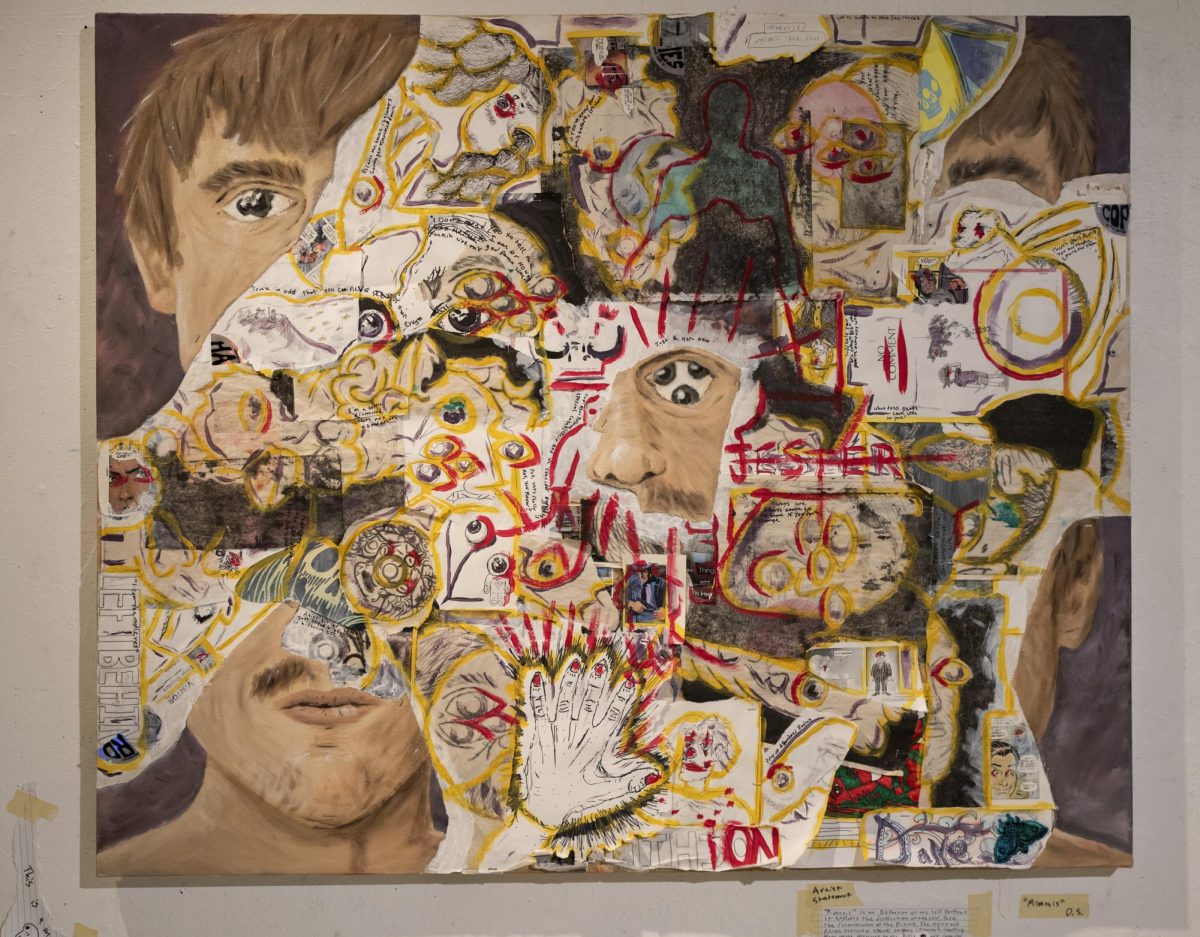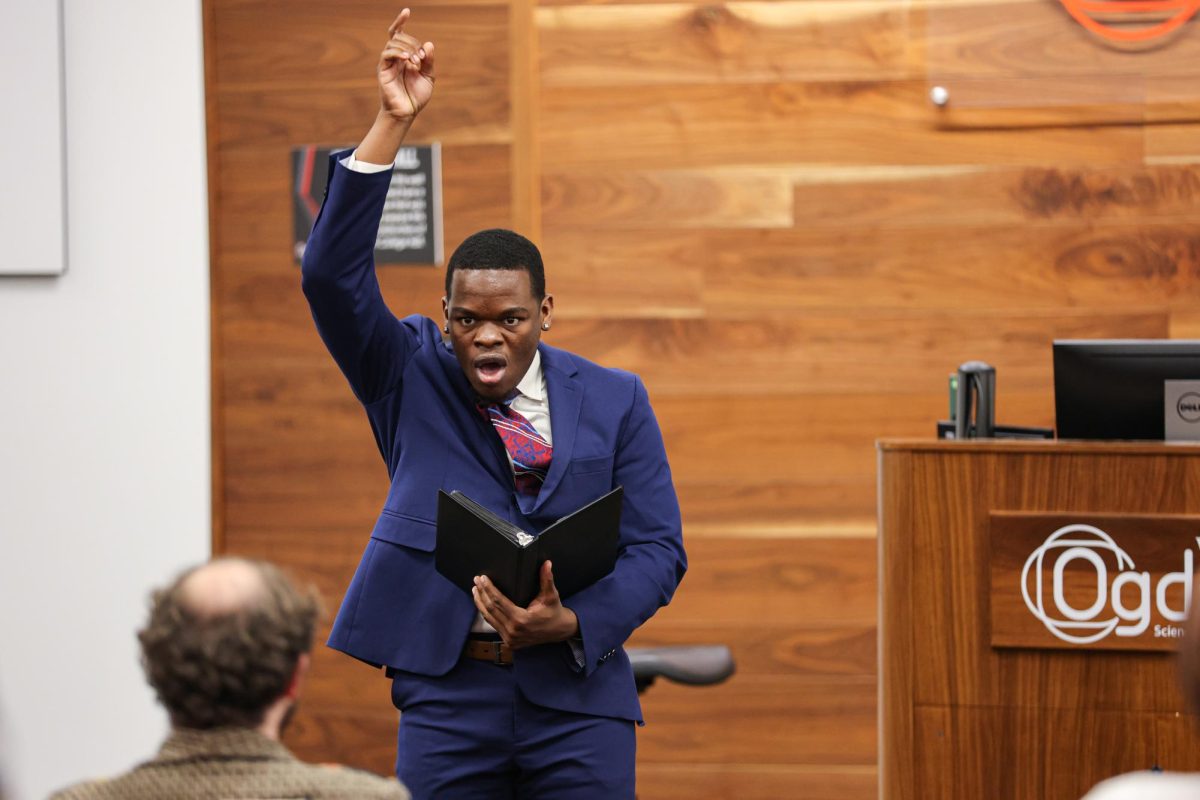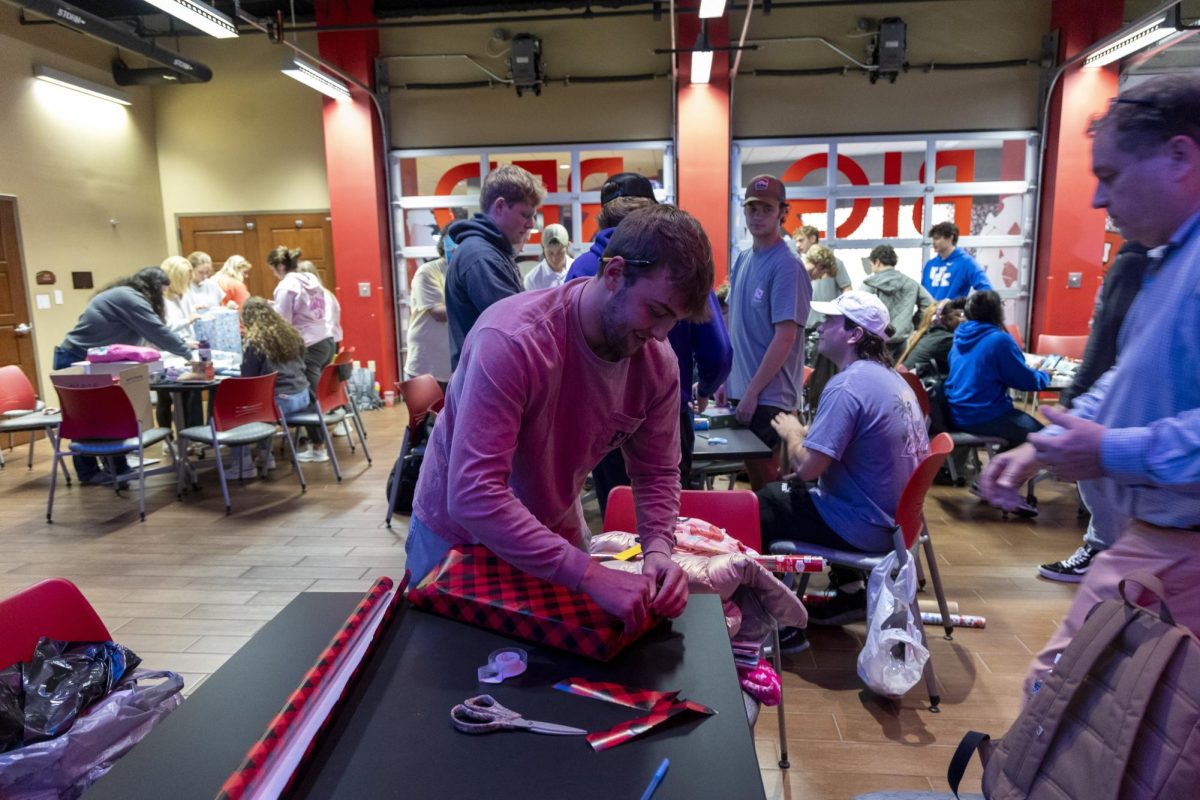The gender and women’s studies department hosted Kishonna Gray on Friday, March 1 for this year’s Gail Martin Lecture Series.
Gray is an associate professor of writing, rhetoric & digital and Africana studies at the University of Kentucky. Her presentation explored black praxis in gaming and the impact these practices have on gaming and streaming.
It was co-sponsored by the Africana Studies Program and the Department of English.
“She is a highly sought-after speaker and regularly addresses both academic and industry audiences, such as at the Game Developers Conference,” Alison Langdon, English department head and professor said.
Gray highlighted that she had always felt like a “misfit” in a lot of spaces but has always found a home in women’s and gender studies.
“I always felt like I was in gender and women’s studies and black studies and media studies and communication,” Gray said. “ I wanted to just have conversations with all these folks and all these disciplines.”
Gray said she often found herself being an accidental scholar. She moved from community to community, exploring the different gaming areas she could associate herself with. With this, she found herself invested in artificial intelligence as an area of research.
“I always said ‘I do not care about AI,’” Gray said. “I don’t want to talk about AI. I’m not going to get wrapped up into a conversation with AI. And then AI actually came to me in really interesting ways.”
Gray first became transfixed on the world of AI when people began sending her links to a workshop she was set to speak at. The website contained an AI-generated image of her and a generated quote. The quote was credited to Gray, although she said she had never said it.
After this, she began diving deeper into AI, discovering it in almost every corner of technology and social media. She gave many examples, depicting its use in creating fake models and influencing the fashion world.
She wanted to find a way to connect this with her own work and beliefs.
“I think it’s really important that we bring conversations from gaming and the tech world,” Gray said. “It’s really important that they kind of go hand in hand. We got to have these conversations together.”
Gray furthered on this by providing the example of the first time she played a black woman character inside a video game.
The “Dead Island” character, Karna Jackson, was created by the company Techland. After playing with the character, she read a blog that was alarmed with the code behind her character. Embedded in the code was the phrase “feminist whore,” Jackson said.
“But could you imagine some executive person, somebody that makes way more money than they do, saying, ‘Hey, we’re tired of these people on Twitter, make a black woman,’” Gray said. “I could imagine his anxieties and all these things that he probably wanted to do. He was burdened with the task of creating a black woman.”
Gray believed this was the leading factor for the developer including this in Karna Jackson’s code. She said that he may have forgotten to take the phrase out after writing it. Techland, though, suggested no offense was taken after receiving backlash.
This occurred alongside the movement for black lives. Gray credited this for the reason there wasn’t much attention towards the Karna Jackson code, and why many weren’t paying attention to the gaming space.
Along with this, Gray discussed how the toxic side of gaming is often ignored because it has become the norm.
“I think also the gaming industry is complicit in the treatment of women and people of color because the gaming industry likes to say, ‘Oh, it’s just those toxic gamers over there, that’s not us,’” Gray said. “We’re not like them. But those conditions are only able to be created and carried out because gaming culture has long devalued women’s lives. It’s long devalued black life.”
Besides “Dead Island,” Gray said there were many other examples of games having racist or sexist undertones, including “Battlefield 1” and “Pokémon GO.”
“Pokémon GO” is a geolocation service. Gray was first introduced to the game when in Chicago with students who asked her to play the game. Upon playing, she discovered that they had to play in a Millennial Park, a tourist-heavy area with large significance, after attempting to play in the southside of Chicago. Here, when she pulled out the game, found that none of the characters generated.
Confused as to why, Gray did some research on how “Pokémon GO” generates its environment and decides where to place its characters. She found that in order to experience the game, players had to be in an area with significance, landmarks, easily accessible with sidewalks, and deemed safe, Gray said.
“And on the south side of Chicago, we know what that means, right,” Gray said. “ Especially with the narratives and the rhetoric that’s around the south side of Chicago, also other urban centers within the country. So there was no way. The infrastructure wouldn’t support it [“Pokémon GO”] either, because the bandwidth, the Wi-Fi maps and hotspots, they’re just not there.”
Carly Fawcett, a sophomore, was shocked at Gray’s breakdown of the game.
“It was really interesting, the ‘Pokémon Go’ stuff,” Fawcett said. “That caught me off guard because I used to play it a lot. But I didn’t know. The fact that it’s just racist and the places it inputs and stuff, I never even thought about that.”
Fawcett expressed how they believe video games’ attempts at inclusivity aren’t always fully thought out.
“The attempts at trying to give representation or give importance to moments that are just not researched,” Fawcett said. “And you don’t think about what you’re actually giving importance to. It’s just wrong.”
Emma Lawrence was in attendance with Fawcett. She had been in a gender studies class that Gray spoke at earlier in the day and was excited to learn more.
“It was so interesting,” Lawrence said. “I wanted to hear more.”
Despite all the negatives within her areas of expertise, Gray believes change is still possible, and not just within gaming.
“I do want to mention, too, that just being on the floor, you can just feel the power and the spirit that gender and women’s studies has,” Gray said. “You can tell that it’s a beautiful community and hopefully it’s supported by the university, too. But just remember, regardless, there is support. We have each other. We have a community. And always remember, if we take care of each other, things will be alright.”
News Reporter Shayla Abney can be reached at [email protected].






